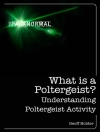All losses are touched with ambiguity. Yet those who suffer losses without finality bear a particular burden.
Pauline Boss, the principal theorist of the concept of ambiguous loss, guides clinicians in the task of building resilience in clients who face the trauma of loss without resolution. Boss describes a concrete therapeutic approach that is at once directive and open to the complex contexts in which people find meaning and discover hope in the face of ambiguous losses. In Part I readers are introduced to the concept of ambiguous loss and shown how such losses relate to concepts of the family, definitions of trauma, and capacities for resilience. In Part II Boss leads readers through the various aspects of and target points for working with those suffering ambiguous loss. From meaning to mastery, identity to ambivalence, attachment to hope–these chapters cover key states of mind for those undergoing ambiguous loss. The Epilogue addresses the therapist directly and his or her own ambiguous losses. Closing the circle of the therapeutic process, Boss shows therapists how fundamental their own experiences of loss are to their own clinical work.
In Loss, Trauma, and Resilience, Boss provides the therapeutic insight and wisdom that aids mental health professionals in not ‘going for closure, ‘ but rather building strength and acceptance of ambiguity. What readers will find is a concrete therapeutic approach that is at once directive and open to the complex contexts in which people find meaning and discover hope in the face of ambiguous losses.
Об авторе
Pauline Boss, Ph D, is emeritus professor at University of Minnesota. She is known worldwide for developing the theory of ambiguous loss and as a pioneer in the interdisciplinary study of family stress management. Dr. Boss is the author of Loss, Trauma, and Resilience: Therapeutic Work with Ambiguous Loss and The Myth of Closure: Ambiguous Loss in a Time of Pandemic and Change. She lives in Minneapolis, Minnesota.












